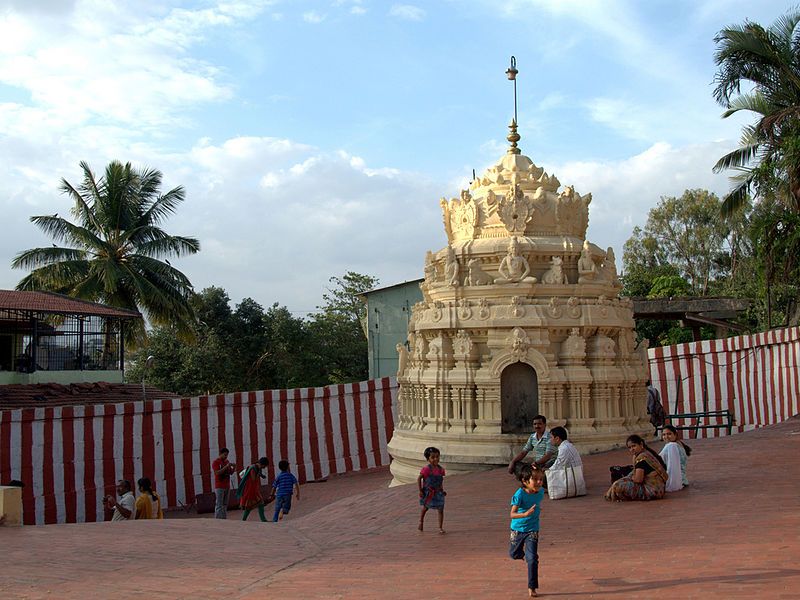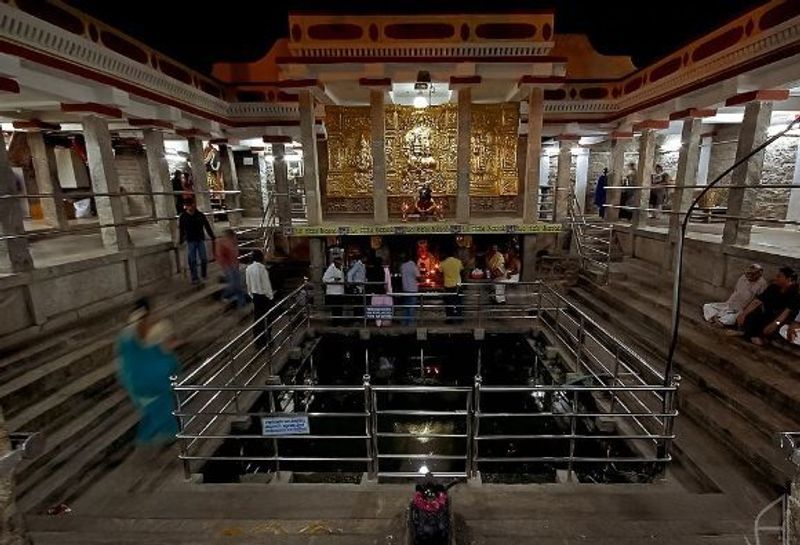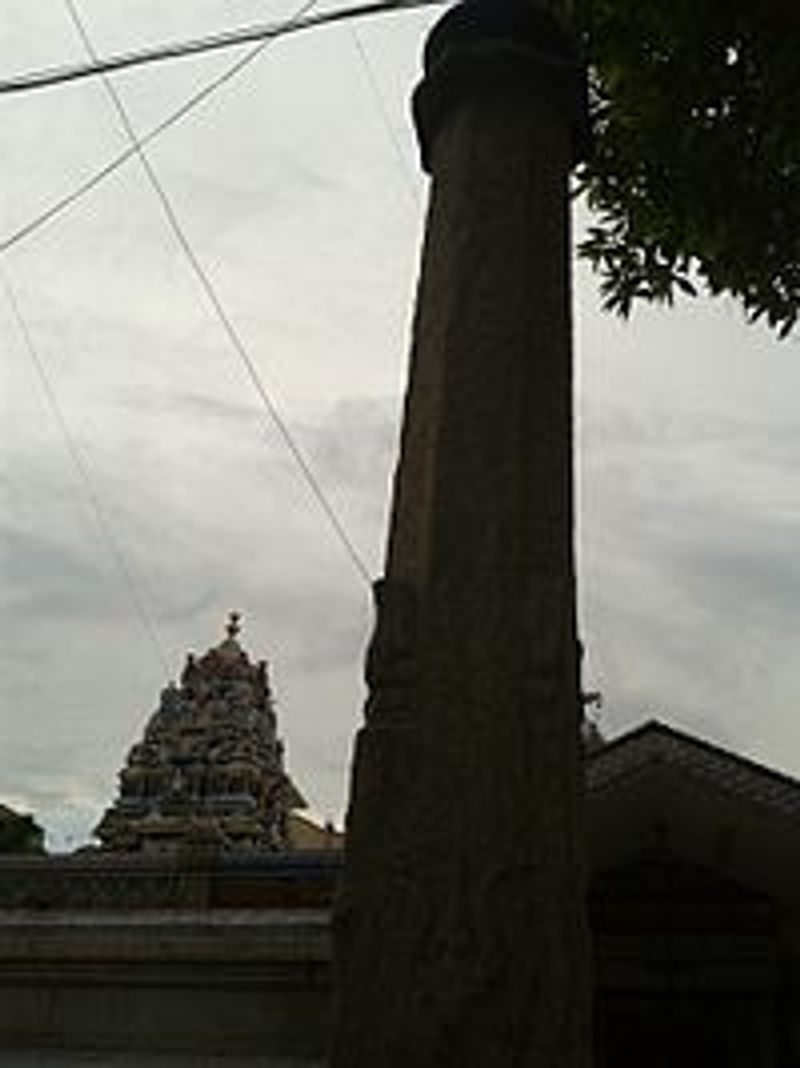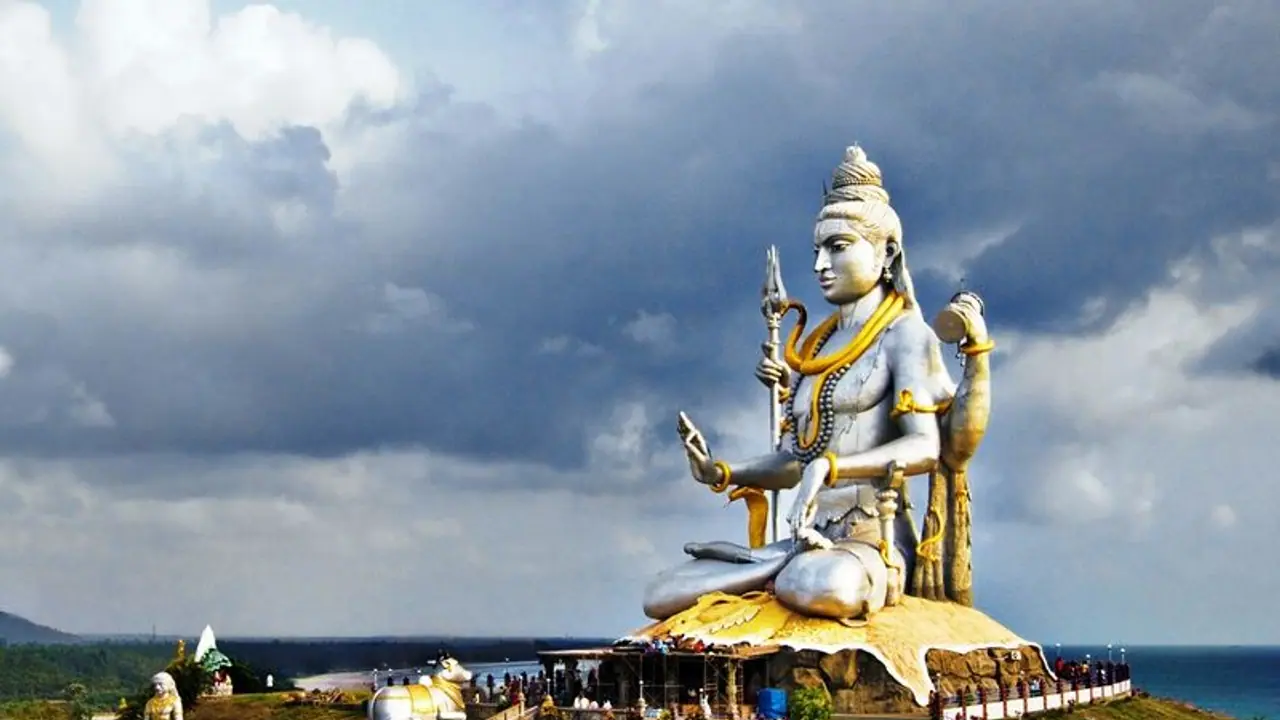On the occasion of Maha Shivaratri we take a look at five ancient temples dedicated to Lord Shiva in Bengaluru
Bengaluru: March 4 is Maha Shivaratri and is a festival celebrated in honour of Lord Shiva. The day marks "overcoming darkness and ignorance" in the world. Lord Shiva is remembered by chanting prayers, fasting, and meditating. Believers in Lord Shiva keep awake all night in an act of reverence called Jagarane. Here is the list of five ancient temples dedicated to Lord Shiva in Bengaluru.


Kote Jalakanteshwara Swamy temple
Kote Jalakanteshwara Temple is dedicated to Lord Shiva and dates back to the Chola era. It was renovated by Kempegowda I, more than 400 years ago. There are three sanctums dedicated to Jalakanteshwara, Parvathi and Kailashnath.
It also has nine stone pillars featuring Navagrahas. Interestingly, only half of the Ardhanarishvara idol of Shiva is visible from the entrance, and only Goddess Parvathi is visible from this angle.
Location: Near Kalasipalya bus stand

Gavi Gangadhareshwara Temple
Gavi Gangadhareshwara Temple, also known as Gavipuram Cave Temple has monolithic pillars. The temple was built in the 16th-century by Kempegowda I. It is built in rock-cut architecture style and is famous for its mysterious stone discs in the forecourt that allows the sun to shine on the shrine only on a particular day and time (Makara Sankranti) of the year.
It is said that the temple was built by Kempegowda in recognition of his release after being sentenced to a five-year imprisonment term by Rama Raya.
Location: Gavipura, Kempegowda Nagar

Kadu Malleshwara Temple
The Kadu Malleshwara Temple was built in the 17th century by Venkoji, the half-brother of the Maratha King Shivaji. It has a Dravidian style of architecture. Shiva is worshipped in the name of Mallikarjun. The front portion of the temple is known as Nandishwara Teertha (also known as Basava Theertha) and is said to be the main source of the Vrishabhavathi river that flows in Bengaluru. The locality Malleshwaram was named after this temple.
Location: Malleshwaram

Halasuru Someshwara temple
Halasuru Someshwara Temple is one of the oldest temples in Bengaluru and was built during the Chola period. Exact date of the temple built is not known but modifications were made during the Vijayanagara Empire period under the rule of Hiriya Kempe Gowda II.
In another legend, according to "Gazetteer of Mysore" published in 1887, Benjamin Lewis Rice writes that one of the stories behind the building of the temple was that Kempegowda was on a hunting spree when he rode past his capital Yelahanka. He grew weary and decided to rest under a tree, where Lord Someshwara (Lord Shiva) appeared in his dream and instructed him to build a temple using the Linga buried in that area. Kempegowda is said to have found the treasure and built the temple.
Location: Ulsoor Road, Someshwarpura

Old Madiwala Someshwara Temple
Old Madiwala Someshwara Temple is also one of the oldest temples in the city and is said to be built during the Chola period in 1247 AD.
The temple has Shiva lingam in the Sanctum Sanctorum and is called "Swayambu" (formed by natural rock formation). A number of Tamil and Grantha inscriptions are found on the outer walls of the temple. The oldest of these inscriptions date back to 1247 AD and talks about land grants.
Location: Hosur Road, Madiwala first stage, BTM Layout
